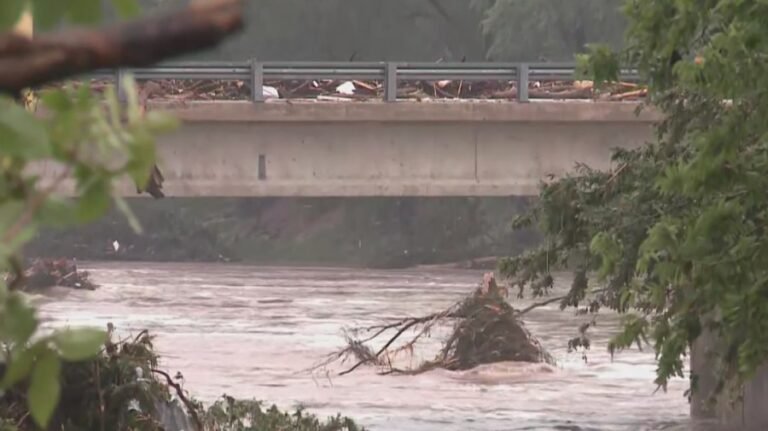
AUSTIN (KXAN)– The Texas Workplace of Chief law officer has actually obtained minimal records of cost gouging pertaining to the Freedom Day flooding. Nevertheless, as healing initiatives increase throughout Central Texas and capital Nation, state authorities and customer supporters proceed advising the general public regarding catastrophe profiteers, fraudsters and illegal charities.
The OAG’s workplace obtained simply one record of cost gouging– a filling station near Kerrville increasing costs by 50 cents– in the days complying with prevalent flooding trouble that left 120 verified dead and 166 even more still missing out on since Friday, KXAN reported.
Deaths and missing out on individuals have actually been reported Kerr, Travis, Williamson, Burnet, Kendall and Tom Eco-friendly regions. Those regions, and others, have actually been placed under state and government catastrophe statements, which activate particular customer securities that make cost gouging prohibited.
As information of the destruction has actually spread out, so has the cascade of assistance and contributions.
For instance, Neighborhood Structure of the Texas Hillside Region– a reputable and clear not-for-profit– introduced $30 million obtained in the Kerr Region Flooding Alleviation Fund in simply 6 days. With gives, $5 million is being sent out to companies to be paid out to “people and family members, neighborhood organizations, initially -responders and dilemma reaction,” according to the company.
Not all fundraising initiatives are legit, though. Rate gouging apart, authorities state fundraising scams can be prowling. Texas Chief Law Officer Ken Paxton claimed currently is the moment be attentive for “criminals attempting to capitalize on this catastrophe.”
Scammers touch AI
Jason Meza, an elderly supervisor of interactions with the Bbb, informed KXAN that fraudsters are making use of expert system to function quicker.
” AI is permitting cyber bad guys the benefit of currently accelerating that procedure of producing accounts crawlers that are talking,” Meza claimed. “As quickly as they rise or developed the accounts and placed them on these systems, they’re swiftly removed, and they’re simply relocating onto an additional. They move so quick.”
Fraudsters are duplicating fundraising web pages and changing savings account web links. They are pirating the remark areas on Meta tales to draw away prospective benefactors and misdirect cash to illegal checking account, Meza claimed.
It is very important for individuals to stop prior to giving away and three-way check settlement websites and web links to guarantee they are guided to appropriate area. If something appears wrong, customers can call charity events or straight message them and ask inquiries. Cyber-criminals attempting to scoot aren’t mosting likely to hang around responding to comprehensive inquiries or supply even more info than what is currently published, Meza claimed.
BBB advises of sob stories, charity events making use of comparable names to widely known charities, charity events that divulge little info, and ask for instant contributions that push you to provide right away.
Rip-offs can be reported to the BBB’s fraud tracker. Customers can likewise report them to the Workplace of Chief Law Officer below.
The Workplace of Chief law officer has pointers and info on catastrophe frauds below and listed below:
- Caution on flood-damaged cars and trucks.
- Suggestions on door-to-door professionals.
Extra pointers and sources:
- Do not wire cash or supply individual financial info like account, bank card or social safety numbers.
- Study charities prior to giving away. 2 devices to examine qualifications are CharityWatch and Guidestar, which maintains internal revenue service information on nonprofits.
- Do not rely on names or telephone number, which can be forged.
- Look out for text solicitations for contributions, likewise called “smishing.”
- Enter your name in the Texas Do Not Call Windows registry (by checking out https://www.texasnocall.com or by calling toll-free at 1-888-309-0600) and the National Do Not Call Windows registry, by checking out www.donotcall.gov or by calling toll-free at 1-888-382-1222 (TTY 1-866-290-4236).



